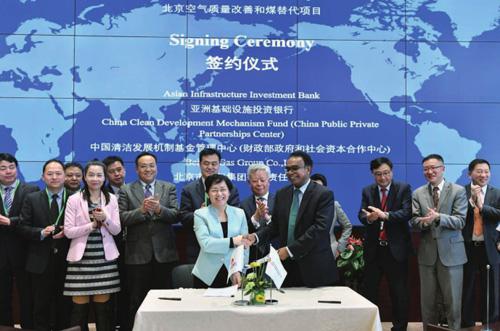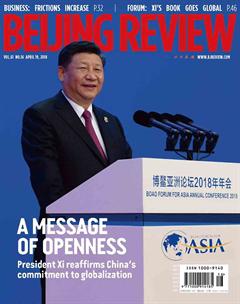AIIB: Promoting Regional Integration
The Asian Infrastructure Investment Bank(AIIB), a multilateral development bank, has helped many Asian countries improve their infrastructure, deepen regional integration and accelerate poverty reduction, according to Supee Teravaninthorn, Director General of AIIBs Investment Operations Department.
“We have three mandates: sustainable infrastructure, regional connectivity and private capital mobilization. As the Chinese proverb says, ‘Better roads lead to a better life,” Teravaninthorn said.
AIIB promotes green infrastructure, helping countries to meet their environmental and development goals.
As far as regional connectivity is concerned, the bank prioritizes cross-border infrastructure, ranging from roads and rails, to ports, energy pipelines and telecommunications across Central Asia, the maritime routes in Southeast and South Asia, the Middle East and beyond, the AIIB official explained.
Concerning private capital mobilization, AIIB devises innovative solutions to catalyze private capital in partnership with other multilateral development banks, governments, private fi nanciers and others, she said.
Teravaninthorn said that in its fi rst year of operation in 2016, AIIB approved investment of $1.7 billion for nine infrastructure projects in seven countries, including Pakistan, Bangladesh, Tajikistan, Indonesia, Myanmar, Azerbaijan and Oman.
In 2017, another $2.5 billion worth of investment was approved by AIIB for projects in Egypt, Georgia, India, the Philippines and China.
AIIB has fi nanced, approved or prepared funds for infrastructure projects in Greater Mekong Subregion (GMS) countries such as an energy efficiency improvement project in Myanmar and an air quality improvement project in China.
“The third project [in the six-member GMS] we are undertaking this year is in Laos with the improvement of the National Road No.13 and we are allocating $40 million for this job. The next project we are discussing will be in Viet Nam, involving water resources, energy and sustainable city development. This project could start in 2018 or 2019,”Teravaninthorn said.
AIIB has yet to finance projects in Cambodia and Thailand, but it is considering technical assistance for Cambodias electricity sector and potential projects in both the private and public sectors in Thailand, including one related to high-speed trains, she added.
“Even though we do not directly target poverty reduction, if we invest successfully in infrastructure, it has a trickle-down effect which benefits the poor,” Teravaninthorn stated, noting that impoverished people can enjoy cheaper electricity charges with fewer or no blackouts if the electrical infrastructure is improved.
AIIB has helped facilitate infrastructure development and regional integration, bringing about positive direct and indirect results, including more efficient transportation and accelerated poverty reduction in many Asian countries. But the Beijing-headquartered multilateral development bank is sometimes accused of being dominated or controlled by China.
“Some people say, ‘You are a Chinese bank. You are a Belt and Road bank. You are a Silk Road bank. No, we are none of those things. AIIBs uniqueness lies in the fact that we really focus on Asia,” Teravaninthorn stated.
AIIB marks the first time major shareholders of a multilateral development bank are developing countries. “The biggest shareholder (of AIIB) is China at 30 percent, followed by India at 10 percent,” she said, noting that the major shareholders of the World Bank and the Asian Development Bank are developed countries.
“China doesnt want to borrow from AIIB, so that money can be utilized for other countries. It is very generous of the Chinese Government,” Teravaninthorn acknowledged, adding that China reserved the right to borrow in the future for only two types of projects.
“The fi rst is anything to do with climate change because we do not consider that a one-country obligation. Its a global obligation, and second is regional connectivity,”the AIIB offi cial said.
AIIB now has 84 members, which is a substantial increase from the 57 members at its inauguration in January 2016.

